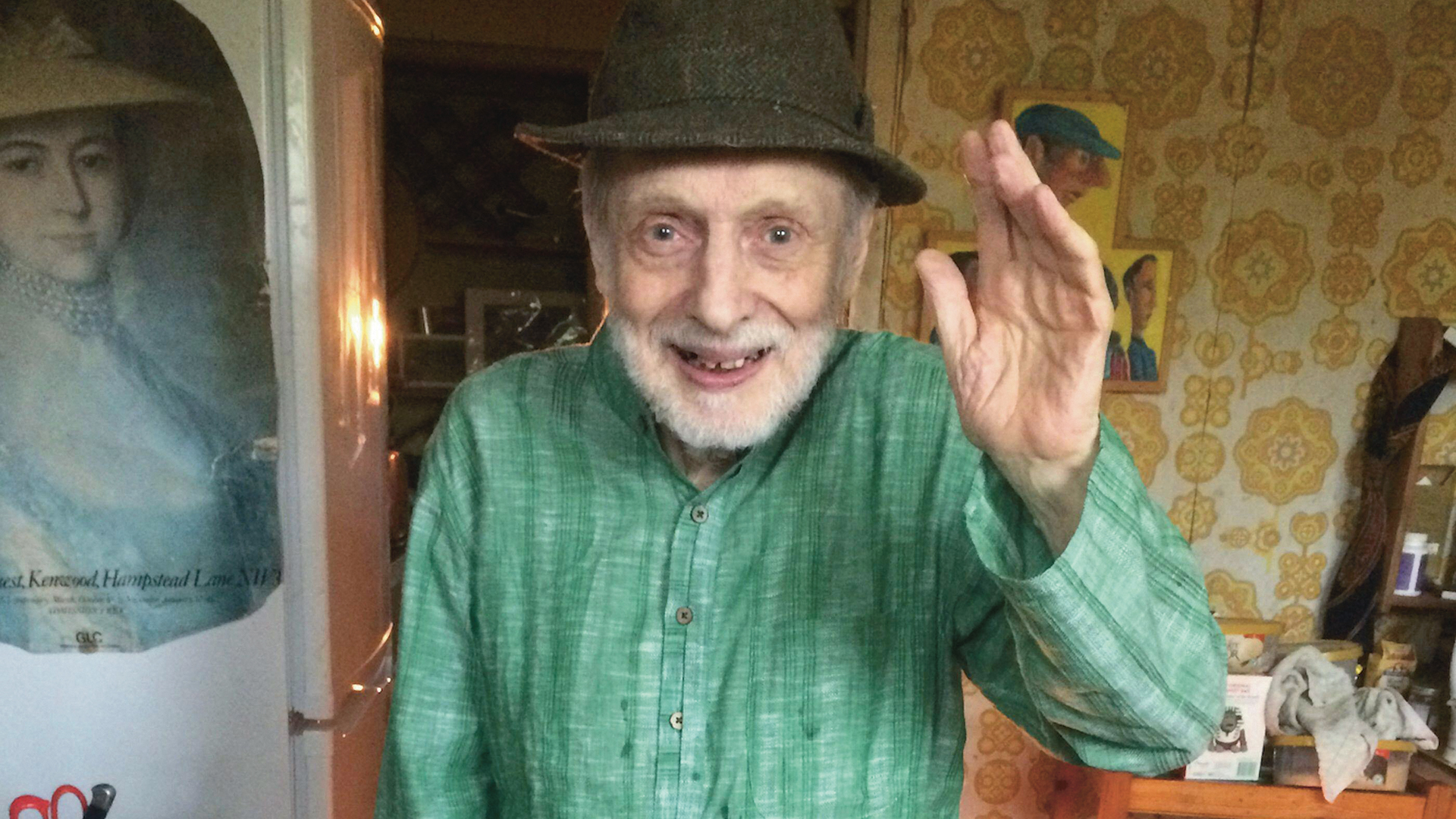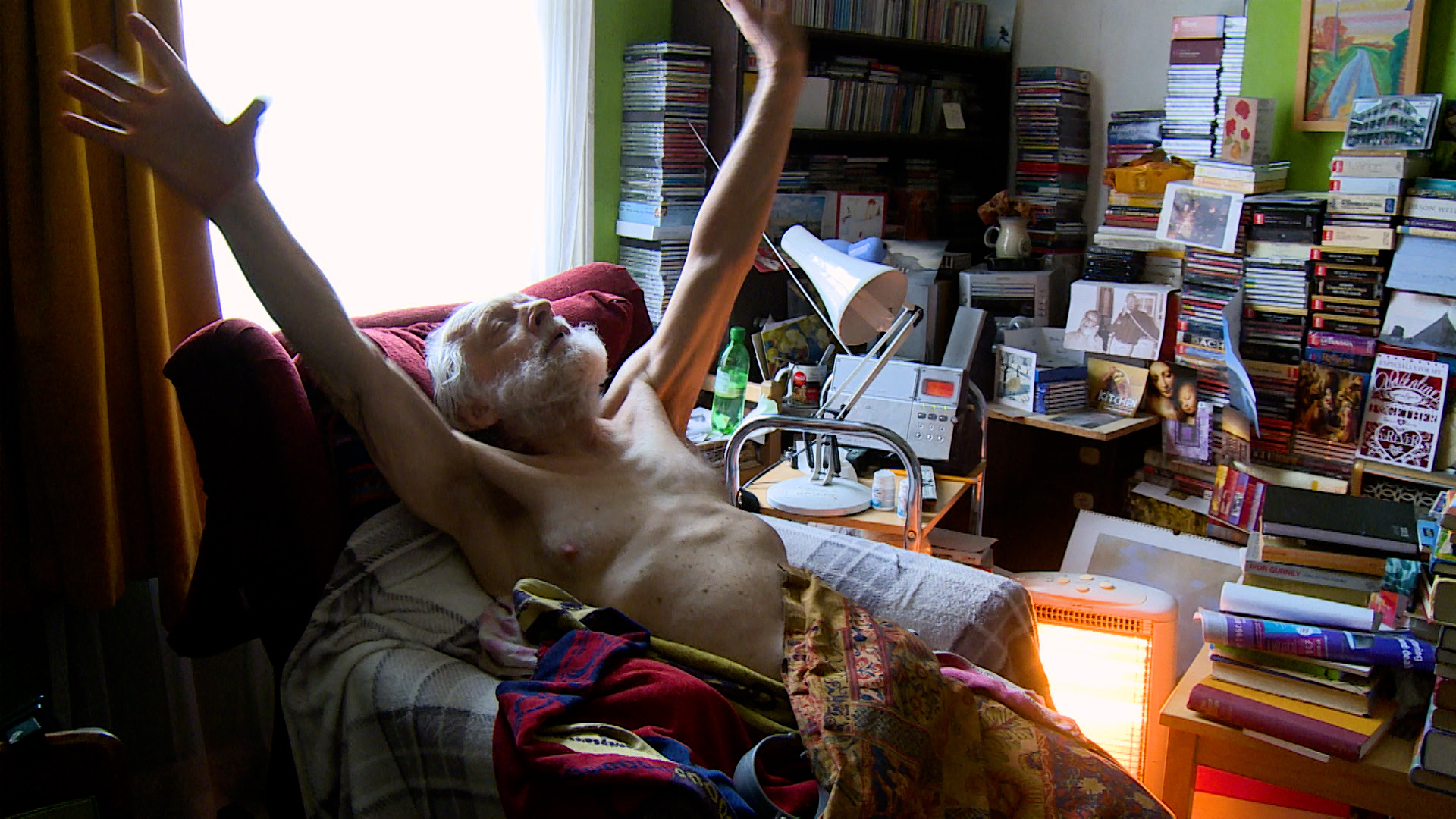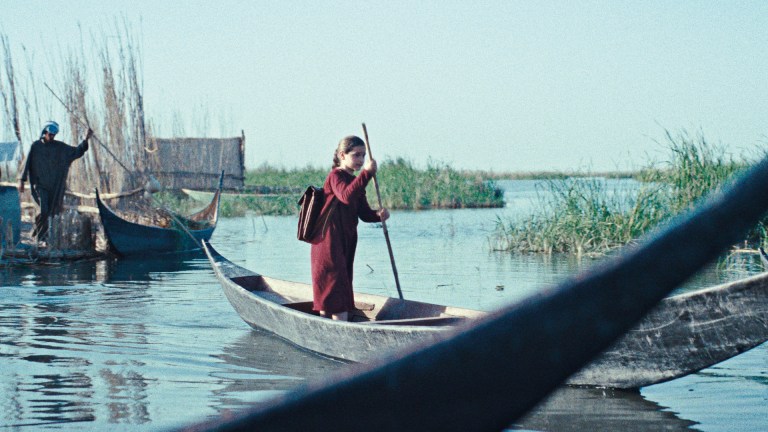“I had no idea I was making something that was going to be so current,” says director Simon Chambers, whose moving, often funny film Much Ado About Dying documents his time as one of the UK’s millions of unpaid carers, looking after his eccentric Uncle David at the end of his life. A retired, gay actor with numerous health issues, David is living in squalor in his London flat, which he accidentally sets on fire, leading him to become homeless and reliant on Chambers for his care. Despite this hardship, Uncle David remains spirited, comparing his plight to his beloved King Lear – the Shakespeare tragedy about an old man growing old, infirm and mad.
Chambers never intended to make a film about his uncle. When David first asked for help, he initially brought his camera along to keep the peace between them. “I don’t know if you know any actors,” he laughs, “but they never seem to be happier than when they have got an audience. It meant we got on better with each other.” In tense moments, the camera acts like a mediator. David recites Shakespeare monologues from memory, or turns his chastising of Chambers into a song and dance, happy knowing that there’s someone at the other side of the lens watching him perform.
Get the latest news and insight into how the Big Issue magazine is made by signing up for the Inside Big Issue newsletter
David’s anarchic spirit remains intact as his physical health deteriorates and he loses the ability to walk. Although Chambers loves his uncle for his unconventional ways (“I was always having to help him out of scrapes,” he laughs fondly) this proves frustrating when he’s trying to do practical things for him. “There’s one bit in the film where I say that sometimes I wish he’d died in the fire,” Chambers says. “I’ve had people who have been carers for family members saying, I’m so glad you put that in. Because you do feel like that, even though you love these people. Sometimes you just think it would have made things simpler.”

Eventually, thanks to David’s savings, Chambers is able to pay for a specialist care home for his uncle – Denville Hall, a retirement home for actors which counts Richard Attenborough and David Warner among its previous residents. “Actors have a very broad range of emotional expression, which you see at the home,” Chambers explains. “They come into the room going, ‘Oh! It’s absolute heaven!’ So over the top! It was always good fun, even when people were ill. Some of them had dementia, so every day they came in and said, ‘Have I ever told you you’ve got a marvellous view?!’ It can be sad, but at the same time, they’re making the best of it, and that’s what David did.”
- Carers Week: Eldercare is the new childcare, and carers need new rights
- ‘It’s too much pressure’: Covid leaves young carers burnt out, lonely and lacking support
When he was looking after David, Chambers was one of a huge number of people in the country with caring responsibilities. Census data from 2021 estimates 5.7 million people in the UK are unpaid carers, but Carers UK research says it could be up to 10.6 million. “There’s this huge crisis in social care,” Chambers says. “It’s a hidden part of our society – people like you and me who are looking after someone that can’t get any care from the state. The film is showing the experience of an undervalued, underrepresented, invisible workforce that our society relies upon.” According to research, 12,000 people a day become unpaid carers, with one in seven people in the workplace currently juggling work and care – and yet, like death, it’s still often an under-discussed aspect of life.









